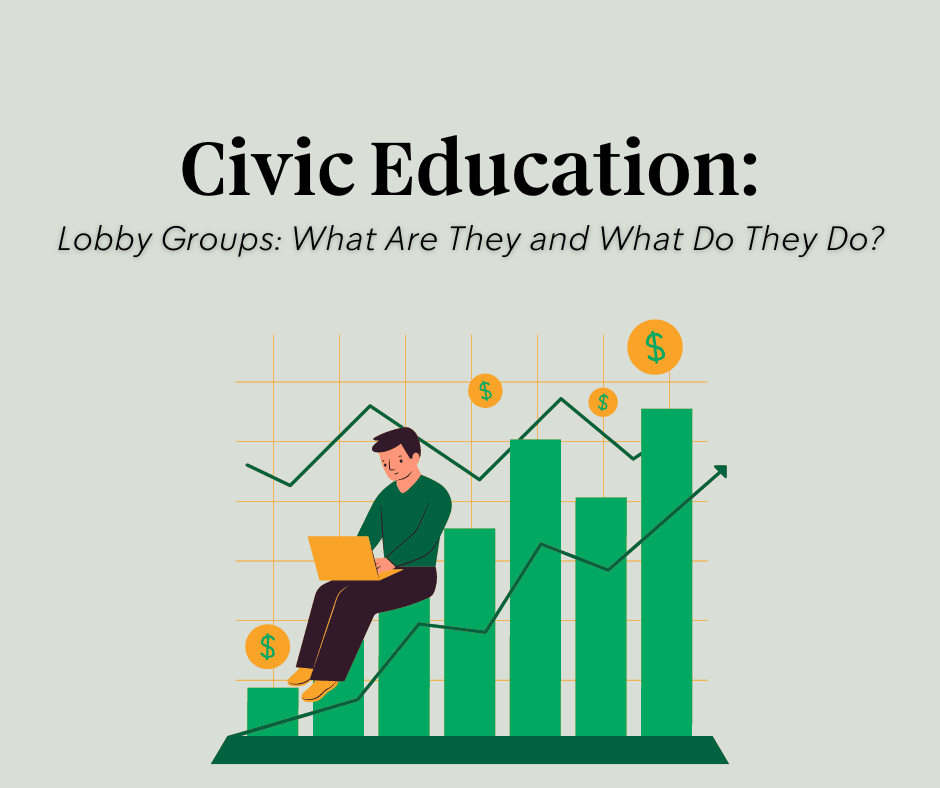
Lobby Groups: What Are They and What Do They Do?
Did you know how lobby groups impact policy?
What are lobby groups?
- A lobby group, or lobbyist, is paid to lobby on behalf of their clients to inform and influence politicians.
- When new laws are proposed, politicians often seek input from representatives of people, companies, and industries that may be affected by them.
- Lobbying is protected by the First Amendment as the right “to petition the government,” which guarantees our right to request that politicians change or update a policy without reprisal.
- While the process can effectively shape public policy, it also draws controversy.
What are some examples?
- According to Open Secrets, industries that allocate significant resources towards lobbying include Big Tech, Pharma, and Oil, as well as insurance and electric utility corporations.
- Some of the largest lobbyist groups in the U.S. include Facebook, Amazon, the American Medical Association, the National Association of Realtors, and the U.S. Chamber of Commerce.
- In 2021, Facebook spent more than $20 million on lobbying, more than any other Big Tech company. The social media giant engages in lobbying efforts related to copyright reform, election integrity, content policy, immigration, and international tax policies.
- Amazon came in second place, spending $19.3 million in 2021, lobbying on issues such as broadband, intellectual property, postal reform, healthcare, and the Justice in Policing Act.
What tactics do lobbyists use?
Lobbyists can...
- Meet with politicians or their staff to discuss, and sometimes even draft, legislation,
- Provide funds or resources for a politician’s electoral campaign,
- Testify at committee hearings,
- Engage the general public to contact their elected representatives and support or oppose their position,
- File lawsuits to advance their cause or block opposing policies,
- And employ public relations and media outreach to influence public opinion.
Can lobbying positively impact the government
- The ability to influence policymakers is a fundamental aspect of the democratic system, and lobbying plays a vital role in informing politicians on issues outside their area of expertise.
- For example, when considering legislation to regulate the Internet, politicians who lack technical knowledge may rely on the opinion and expertise of computer scientists and Internet lawyers that special interest lobby groups represent. These lobby groups provide access to research, context, and expertise on critical issues, ensuring lawmakers are well-informed when considering a new law.
Does lobbying negatively impact the government?
- Lobbyists and lobby groups can be controversial due to their direct relationship with government officials. The lobbying process is often informal, can lack transparency, and sometimes includes the exchange of gratuitous benefits such as dinners or donations.
- In the U.S., lobbyists are allowed to donate to a politician’s reelection campaign. As funding is required to be reelected, those who contribute the most are often granted greater access and influence over politicians. Lobby groups, therefore, can make substantial political donations to persuade politicians to pass laws that benefit their client’s interests, leading to a system where politicians prioritize the interests of minority groups rather than the interests of the wider public.
Did you know how lobby groups impact policy?